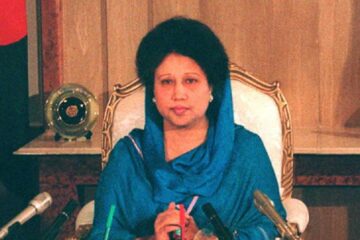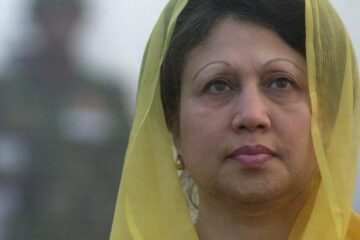The recently concluded 31st Kolkata International Film Festival (KIFF) had 215 films from 39 countries, but none from Bangladesh. Last year Bangladesh was also excluded from this festival. Interestingly, there was a bold submission by one film maker from Bangladesh this year, but it was rejected because the film did not meet the film festival’s jury criteria. The film was not the “kind of film they were looking for,” was the excuse for the rejection. Really?
If we all recall, Bangladesh was eagerly sought after and allowed several films in the same festival in the previous years prior to the change in government in Bangladesh in 2024. This development results from the popular movement in July 2024 that toppled the government of Sheikh Hasina and installed a non-political government headed by a non-political person as an interim government.
This unforeseen or rather unanticipated end of a government headed by a person who for years remained a loyal ally of India, seemed to so upset India that short of severing diplomatic relationship, it took all measures to cut off Bangladesh — that cannot be considered very friendly. This included restrictions on travel, visa, trade, and of course, now cultural exchanges.
One has to look at this from the perspective of Indo-Bangladesh relations since our independence in 1971. These relations were not only founded during the struggle for independence, but also after the independence and with great understanding between the two leaders at that time, Bangabandhu Sheikh Mujibur Rahman and the Iron Lady of India, Indira Gandhi. It was a serious apprehension then that the Indian army which helped the capitulation of the Pakistan army in December 1971 might stay indefinitely in Bangladesh.
But to dispel this fear Indira Gandhi agreed to withdraw the Indian forces as early as March 1971 at the request of Mujib. This was possible because India respected Bangladesh as an independent country. It was possible because there was a pragmatic leader in India with foresight who wanted to plant a seed of trust between two peoples. There was a 25-year friendship treaty between the two countries drawn at the same time that respected the integrity and sovereignty of the two countries, albeit with a commitment to help each other in defense of their territories.
Five decades have passed since then, although governments in both countries have changed many times since. Sheikh Mujibur Rahman was killed in a brutal attack at his residence on him and his family in 1975. His government was replaced by a renegade of his own party only to be removed and replaced by a military regime soon. This was followed by a series of military-run governments for 15 years.
These changes did not bring about any hostility from India toward Bangladesh, the kind we see now. Not even when the pseudo-democracies under military leaders of Bangladesh were replaced by a pro-democracy movement that installed a political party not known for its love for India.
India-Bangladesh relationship thrived better when there were more exchanges between people, particularly because of linguistic and cultural affinities of Bangladesh with a large section of people across the border. These relationships transcended politics and helped bond the neighbours better.
What explains this Indian metamorphosis now? Is it because India was so wedded to only one political personality of Bangladesh who they think would look after Indian interests, and with her departure think that India is in danger? Or is it because India itself has been overtaken by a jingoist religious party and a paranoid leader?
If one argues that the unfriendly reactions of India emanate from its apprehensions of hostility from a close neighbour because a trusted leader of that country has been ousted, consider this: For India, the fall of Sheikh Mujib, a person who the Indian PM, Indira Gandhi, addressed as a personal friend, was a loss not only for Bangladesh, but India as well. But the Indian leadership, beginning with Indira Gandhi through a succession of leaders and political parties who followed her, did not view the political changes so inimically as the current Indian leadership does.
It is normal for India to expect its neighbouring country to be a dependable ally. But this expectation is a two-way traffic. An alliance between countries is based on trust and mutual respect irrespective of the size of the countries. Most importantly, such an alliance becomes stronger when the government-to-government relationship considers people who live in the countries.
Indian leadership makes a mistake when it plants its relationship with another country on a single individual and bets on the eternal life of that leader for the relationship to continue. Unfortunately, evidence so far suggests that the attachment of India to our past leader continues to guide its negative policy toward Bangladesh.
The relationship between our two countries will only improve if there is greater empathy from current leaders of India toward the great change that has happened in the last year and a half. It will improve only when Indian authorities have a deeper understanding of the people who live in the countries and their minds.
Ziauddin Choudhury has worked in the higher civil service of Bangladesh early in his career, and later for the World Bank in the US.


